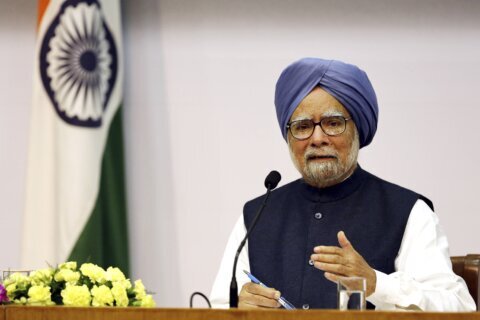Dazzle your MBA interviewers.
Many prestigious business schools place significant weight on a candidate’s admissions interview performance. An applicant who conveys charisma and gravitas is more likely to be accepted into a top-flight MBA program than someone who displays neither quality. B-school admissions officers say they use interviews to gauge whether an applicant has key personality traits that are beneficial for future executives, such as clarity, self-awareness, humility and sincerity. Experts recommend the following 10 strategies to MBA hopefuls who want to make a solid impression during their interviews.
Refresh your memory beforehand.
If it’s been a while since you conducted research on B-schools, it’s worthwhile to reminisce about that experience and recall the lessons learned, according to experts. “Review the research you have done on the B-School to make sure you understand why you consider it a good fit and how you believe you will contribute as a member of the community,” Kelly R. Wilson, executive director of masters admissions at Carnegie Mellon University’s Tepper School of Business in Pennsylvania, wrote in an email. “This information will likely be drawn from the experiences you have had visiting class, speaking with current students and alumni.”
Prepare to answer tough questions.
To avoid being caught flat-footed by an unexpected line of inquiry, MBA hopefuls should spend time brainstorming a list of questions that they might be asked and consider the best approach to answering those questions, experts say. They should anticipate and prepare for anxiety-inducing or provocative questions about past mistakes, personal weaknesses and ethical dilemmas, plus open-ended questions about their identity. Candidates should also have a diplomatic but truthful response to any question about a moment when they interacted with an ineffective manager and what they learned about leadership as a result.
Cultivate confidence.
Anyone who receives an invitation to an MBA admissions interview should feel flattered, since such an invitation is usually reserved for competitive candidates. An opportunity to interview means you have a solid shot at acceptance, according to admissions experts. “Focus on your strengths and when they ask about your weaknesses, be ready to be self-critical while highlighting your belief in yourself,” Anjala Krishen, director of MBA programs at the University of Nevada–Las Vegas Lee Business School, wrote in an email. “Being ostentatious or arrogant during an interview is not good, but being overly self-critical and lacking self-belief is also bad.”
Develop a clear pitch.
It’s essential to articulate precisely why you want an MBA and what distinguishes you from other MBA hopefuls. “Know why you want an MBA,” John Crossman, CEO of Crossman Career Builders, wrote in an email. “The answer needs to show specifically what skill set you want to add and the benefit you seek from it. Know what you bring to the MBA program. Your undergrad and work experience should bring something to the table.”
Tell success stories.
Anecdotes about how you’ve used your talents are much more effective than assertions about your skills, according to experts. “Prepare 3-5 stories of times when you really did something well, or really contributed meaningfully to your team, or your strengths shone in general,” Fabio Gaertner, an associate professor at the Wisconsin School of Business, recommended in an email. “Think through what happened carefully, type out the narrative, and eliminate the fluff until you have a very clear and compelling story to tell that highlights your strengths and abilities.”
Adjust to your interview format.
If your interview isn’t in a traditional in-person, one-on-one format, you may need to adjust your approach, experts say. During group or team challenge interviews, an overbearing presentation is a deal-breaker, so it’s essential to listen and collaborate well with others. During video calls, it’s crucial to appear professional throughout, says Shelbi Brookshire, executive director of MBA and M.S. admissions at the University of Maryland’s Robert H. Smith School for Business. “Test your technology, ensure you have good lighting and join the virtual interview on time,” Brookshire wrote in an email. “Brand and presence are still as important in digital formats.”
Show courage and be yourself.
Rather than trying to conform to the profile of a typical student at their target school, MBA hopefuls should proudly showcase what makes them unique, experts say. “It’s important that MBA interviewees realize that it’s in their best interest to be authentic and truthful in responding to interview questions,” Liz Arnold, founder of Digital Orchards, a consultancy that helps workers find jobs in the tech sector, wrote in an email. “As an interviewer, you hear so many stories, and practiced ears can easily detect when a candidate is telling me what they think I want to hear.”
Avoid long-winded comments.
MBA hopefuls should not show up to admissions interviews without practicing their remarks in advance, experts warn, noting that an improvisational approach usually leads to rambling. Before arriving at interviews, MBA hopefuls should think about how they can express their ideas quickly and clearly. “Spend some time preparing to answer typical interview questions by writing out your responses,” Arnold recommends. “Then ask friends who have gone through the process to help you practice verbalizing your responses. As an experienced interviewer, I can always tell when someone has prepared or when they are winging it.”
Fully address interview questions.
It’s unwise to evade a question or to offer an incomplete answer, according to experts. “Firstly, take a moment to think about the question and make sure what you are going to say really addresses it,” Amy Duckworth, director of admissions with Imperial College Business School at Imperial College London, wrote in an email. “If the question isn’t clear then ask for clarification — it’s far better to do this than to try to answer when you’re not really clear on what is being asked. Finally, you can check with the interviewer that what you have said answered their question.”
Ask thoughtful questions.
“There’s almost always an opportunity to ask questions at the end of an interview,” Duckworth says. “I would recommend preparing these questions in advance and having them written down. I would advise against asking things that you could have easily found on the school’s website. At Imperial most of our MBA interviews are conducted by alumni — try to ask them insightful questions that will allow them to share their own experiences at the school.”
Get advice on navigating the MBA admissions process.
Explore the 2022 Best Business Schools rankings, and follow this MBA admissions timeline to ensure that you complete every application-related task when you need to do so. Follow U.S. News Education on Facebook and Twitter for the latest education news and advice.
How to wow MBA interviewers
1. Refresh your memory beforehand.
2. Prepare to answer tough questions.
3. Cultivate confidence.
4. Develop a clear pitch.
5. Tell success stories.
6. Adjust to your interview format.
7. Show courage and be yourself.
8. Avoid long-winded comments.
9. Fully address interview questions.
10. Ask thoughtful questions.
More from U.S. News
4 Qualities That Help Applicants During MBA Interviews
15 Ways to Find Money to Pay for an MBA
6 Options to Cut the Cost of an MBA
10 Ways to Nail Your MBA Admissions Interview originally appeared on usnews.com







